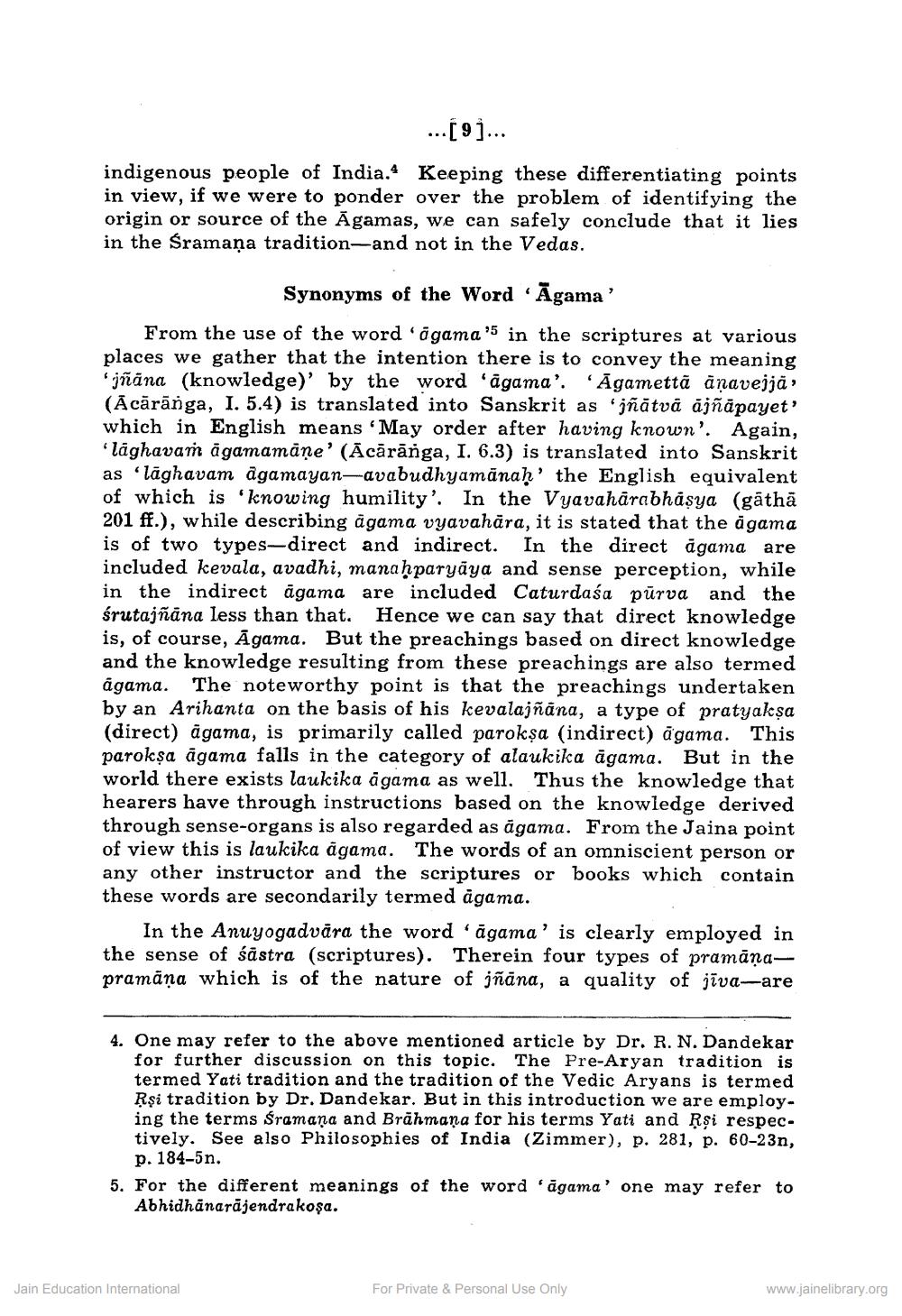________________
...[9)...
onder
indigenous people of India.4 Keeping these differentiating points in view, if we were to ponder over the problem of identifying the origin or source of the Agamas, we can safely conclude that it lies in the Sramana tradition and not in the Vedas.
we cathe Ved
Synonyms of the Word · Agama'
From the use of the word 'āgama's in the scriptures at various places we gather that the intention there is to convey the meaning
jñāna (knowledge)' by the word 'agama'. Āgametta anavejja' (Ācārānga, I. 5.4) is translated into Sanskrit as 'jñātvä ajñāpayet' which in English means 'May order after having known'. Again,
laghavam agamamāne' (Ācārānga, I. 6.3) is translated into Sanskrit as lāghavam agamayan-avabudhyamānaħ' the English equivalent of which is knowing humility'. In the Vyavahārabhasya (gāthā 201 ff.), while describing agama vyavahāra, it is stated that the agama is of two types-direct and indirect. In the direct agama are included kevala, avadhi, manahparyāya and sense perception, while in the indirect agama are included Caturdaśa pūrva and the śrutajñana less than that. Hence we can say that direct knowledge is, of course, Agama. But the preachings based on direct knowledge and the knowledge resulting from these preachings are also termed agama. The noteworthy point is that the preachings undertaken by an Arihanta on the basis of his kevalajñāna, a type of pratyakşa (direct) agama, is primarily called paroksa (indirect) agama. This parokșa agama falls in the category of alaukika agama. But in the world there exists laukika agama as well. Thus the knowledge that hearers have through instructions based on the knowledge derived through sense-organs is also regarded as agama. From the Jaina point of view this is laukika agama. The words of an omniscient person or any other instructor and the scriptures or books which contain these words are secondarily termed ägama.
In the Anuyogadvāra the word 'agama' is clearly employed in the sense of śāstra (scriptures). Therein four types of pramānapramāna which is of the nature of jñāna, a quality of jīva-are
4. One may refer to the above mentioned article by Dr. R. N. Dandekar
for further discussion on this topic. The Pre-Aryan tradition is termed Yati tradition and the tradition of the Vedic Aryans is termed Rşi tradition by Dr. Dandekar. But in this introduction we are employing the terms śramana and Brāhmana for his terms Yati and Rsi respec. tively. See also Philosophies of India (Zimmer), p. 281, p. 60-23n,
p. 184-5n. 5. For the different meanings of the word 'agama' one may refer to
Abhidhānarājendrakoşa.
Jain Education International
For Private & Personal Use Only
www.jainelibrary.org




